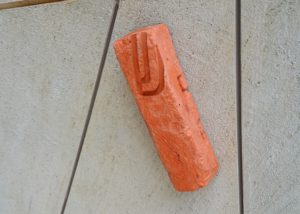“Then the officials will speak to the soldiers. They are to say, ‘Is there a man here who has built a new house, but hasn’t dedicated it yet? He should go back home now; otherwise he may die fighting, and another man will dedicate it.”–Deuteronomy 20:5
From today, we’re going to begin a discussion of the three circumstances the Torah gives us that allowed a young Hebrew soldier to NOT participate in the Holy War to take the Land of Canaan.
The first reason given is that a young soldier might have a home he has not yet “dedicated” and if he doesn’t properly “dedicate” it, there is the danger he may die in battle and another man will “dedicate” it.
Okay, so I know everyone is thinking what in the heck does “to dedicate a house” mean?
Well, I’m sorry to say this is one of those parts of Scripture where there’s a lot of speculation.
Why?
Simply because there’s no mention in the Jewish Bible of this practice of “dedicating a house” or any ritual connected to it.
While I can’t give you a definitive answer, I can give you a sampling of the variety of educated speculations the Jewish sages have given us over the centuries.
One interpretation given is that “to dedicate a house” means to perfect it.
According to the Targum of Jonathan, a home is not quite finished until it is “fixed in it the door posts”.
Okay, so that leads us to the question of what in the heck does “fixed in it the door posts” mean?
Some have speculated that this is referring to the Mezuzah which the Jewish people are obliged to fasten to the door posts of their home.
Until this was done, a house was considered “not completed”.
Personally, I find this interpretation difficult to accept simply because I find it too simplistic.
It only takes a few minutes to attach a MEZUZA to one’s doorpost.
So I fail to see how this would prevent someone from fighting a war.
I think Jarchi’s (a Medieval French Rabbi) interpretation combined with Josephus’s explanation makes much more sense.
Jarchi says this means that a man has built a home but has not yet dwelt in it.
Building on this, Josephus explains its about a newly built home not having been used and enjoyed by a man for a full year.
This makes much more sense to me.
Furthermore, according to the traditions of the time, when a man built a new house, a ceremony of sorts was held.
It was customary to invite family and friends over for the eating of the first meal in a new house.
This could actually be patterned after the dedication of the Tabernacle or the Temple.
Check out this verse from Nehemiah:
“At the dedication of the wall of Jerusalem, the Levites were sought out from where they lived and were brought to Jerusalem to celebrate joyfully the dedication with songs of thanksgiving and with the music of cymbals, harps and lyres.”-Nehemiah 12:27
This verse from Deuteronomy 28 also seems to shed some light on this.
“You will be pledged to be married to a woman, but another will take her and rape her. You will build a house, but you will not live in it. You will plant a vineyard, but you will not even begin to enjoy its fruit.”-Deuteronomy 28:30
Finally, another common speculation is that this may be referring to a man who has just recently married and has yet to start a family.
If the husband died in battle leaving his wife a widow before they had children, the house could end up being possessed by another person and in the Middle Eastern tradition that would have been a big no-no.
I’m gonna end it right here but just be aware that in the Bible academic community there’s a ton of disagreement concerning what “to dedicate a house” precisely means.
Stay frosty.




Leave a Reply